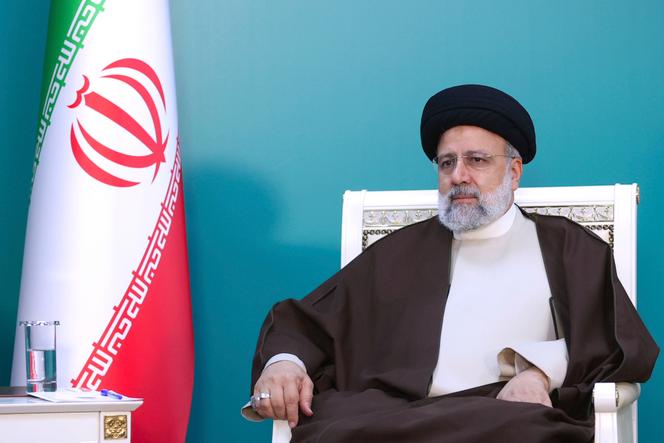


The death of Iranian President Ebrahim Raisi in a helicopter crash was confirmed in a government statement on Monday, May 20, after hours of denials and contradictory information. On Sunday, Iranian media had initially reported the presidential helicopter had had a "hard landing," but later called it "a crash," suggesting Iranian officials were already aware of Raisi's death. Earlier in the evening, Supreme Leader Ali Khamenei called on Iranians to "pray" and "hope that God will bring the president and his companions back into the arms of the Nation."
Also killed in the crash were Foreign Minister Hossein Amir-Abdollahian, Governor of East Azerbaijan Malek Rahmati, and the imam of the Friday Prayer in the same region, Mohammad Ali Ale-Hashem. Raisi died after meeting his Azerbaijani counterpart Ilham Aliyev on Sunday morning to inaugurate a dam on the Aras River near the Iranian city of Khoda Afarin, which sits along the border with Azerbaijan. The helicopter crashed as they were returning to Tehran in dense fog.
The leader's death comes at a time of heightened tension in the region as a result of Israel's war on Gaza. On April 13, Iran launched an unprecedented drone and missile attack against Israel following the Israeli attack on the Iranian consulate in Damascus. The country has in recent months experienced unprecedented public protests, was targeted in January by the Islamic State group in the deadliest attack on Iranian soil since 1978, and is in the throes of a severe economic crisis.
A few hours before the official announcement of Raisi's death, Khamenei was reassuring in a speech to the country's Revolutionary Guards. "The nation has no need to be worried or anxious, since the country's administration will not be disrupted at all," he declared. This statement suggested that little change is to be expected after the president's death; the country's powers are exclusively in the hands of Khamenei, his allies, and the Revolutionary Guards.
Tehran's internal power balance is not likely to be upset. Its diplomacy is unlikely to change, either, particularly in terms of its military and strategic support for its allies in the region, including Syrian President Bashar al-Assad, the Lebanon-based Hezbollah, the Houthis in Yemen and Shiite militias in Iraq.
The 63-year-old ultraconservative and uncharismatic cleric was elected in a June 2021 ballot that saw an unprecedented boycott by a majority of Iranians, with an abstention rate of 51.2% (74% in Tehran). To ensure that he was elected, the Guardian Council, an unelected body, had eliminated all opponents who might have overshadowed him.
You have 60.06% of this article left to read. The rest is for subscribers only.
